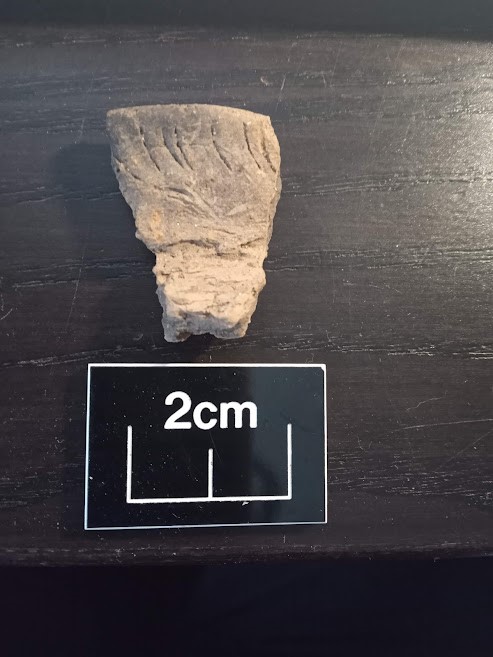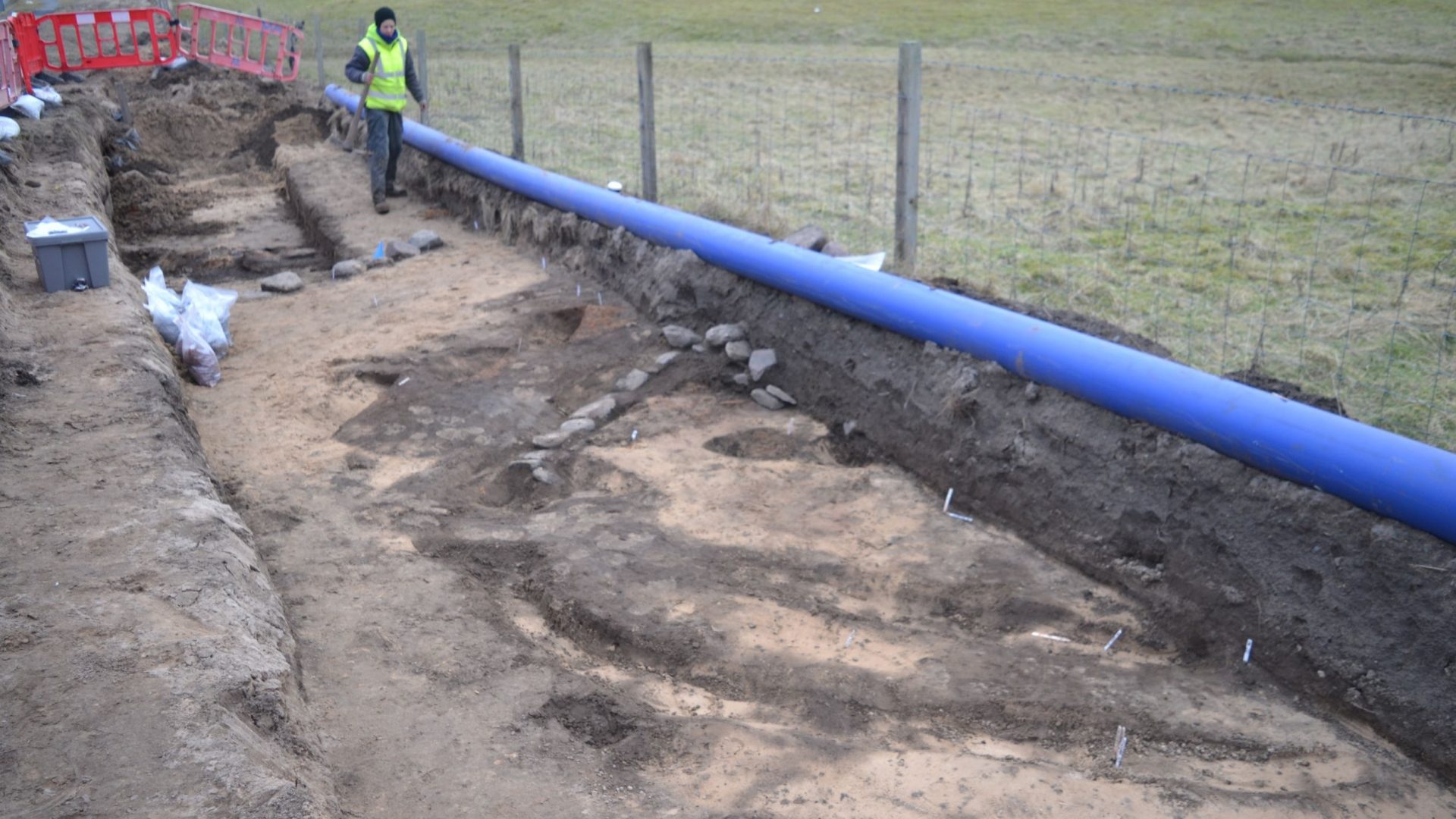A Scottish Water project on the Isle of Lewis has led to the discovery of a Medieval site rarely identified in the Outer Hebrides. The site, discovered close to Gress and made up of linear stone features, pits and postholes, produced over 100 shards of pottery, an unidentified coin, fish, and animal bones.
Following analysis of the finds, the site has been tentatively dated to between the 14th and 16th Centuries AD and is thought to have been an area for processing and managing sheep, rather than a domestic dwelling due to the layout of the stone features, holes, and banks of earth.
Initially the pottery, which was later identified as ‘Craggan ware,’ suggested that the site dated to the Prehistoric Period. However, as more pottery was discovered in the same deposit as a badly corroded small coin the dating of the site was brought forward to the Medieval Period.

Craggan ware is a type of rough, handmade pottery from Lewis and the Hebrides that was made in some instances up to the early 20th Century.
Alastair Rees of ARCHAS Ltd, who worked with Scottish Water and Comhairle nan Eilean Siar’s Archaeology Service at the site, said: “We have very little evidence from the Medieval Period in the Western Isles, partly because of the organic nature of the buildings and possibly because many of the later blackhouse settlements obscured the earlier evidence. This discovery was not only very interesting but helps greatly with our knowledge of this time period in the Western Isles.
“The features and artefactual evidence that has been recovered is suggestive of both food consumption and the processing of sheep and other animals.
“The fish bones that were recovered have been identified as coming from large examples of cod and haddock, up to 1.30m and 0.70m in length which would have been caught in deeper waters on long lines. Parts of the head were also found suggesting that whole fish were taken to the site to be consumed.”
The site was discovered during a £9.3m project to renew around 21km of water mains between Marybank and Tolsta, as well as install a new pumping station and water storage tank, which is being carried out on Scottish Water’s behalf by alliance partner Caledonia Water Alliance (CWA).
CWA Project Manager Lee Biddulph said: “We take our responsibility to protect the historic environment seriously and are pleased to have worked alongside Comhairle nan Eilean Siar and ARCHAS to ensure this important discovery was conserved and properly recorded.
“Work on the project has now entered the final stages before the new infrastructure comes into service later this year.”
Kevin Murphy of the Western Isles Archaeology Service said: “Early engagement between Scottish Water and the Comhairle Archaeology Service identified several areas along the pipeline route as having a heightened archaeological potential, prior to works commencing. This ensured that when unexpected archaeological deposits were encountered, there was no delay to the overall project.
“The team of archaeologists who worked hard in poor weather conditions have given us an important glimpse into a period that is not well represented in the Outer Hebrides. While we don’t know the exact function of this site, the assemblage recovered from it will be an important asset to researchers of Medieval period in the Outer Hebrides.”



